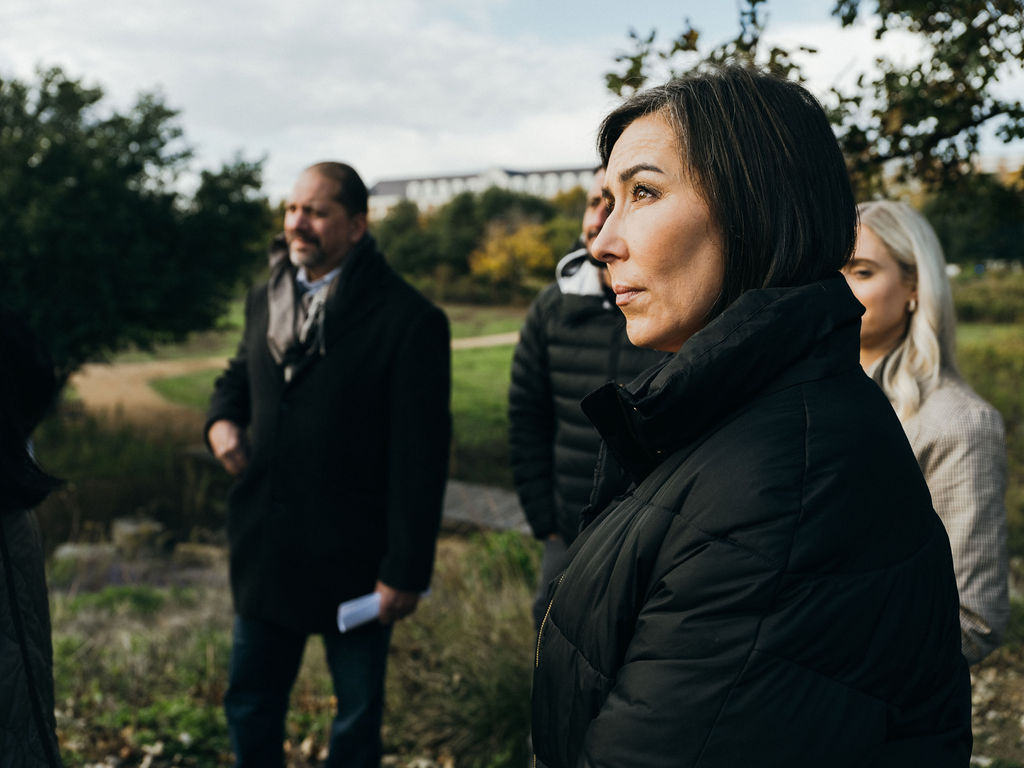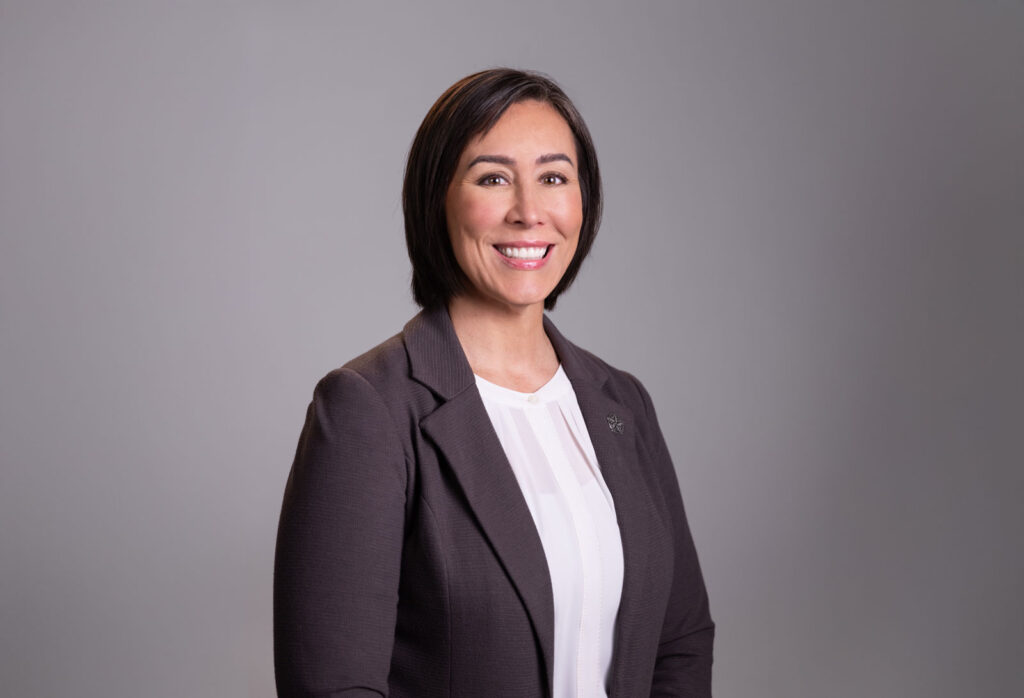Jennifer Ballou, a retired U.S. Army Master Sergeant, Gold Star Spouse, military spouse and Co-Chair of the GWOT Memorial Foundation’s Design Advisory Council, shares her powerful journey of service, sacrifice, and healing. Through her personal experiences, Jennifer reflects on the significance of the Global War on Terrorism Memorial and its mission to honor and unite those impacted by the conflict.
Tell us about yourself and your role in the Global War on Terrorism Memorial Foundation.
A: I’m Jennifer Ballou, a retired U.S. Army Master Sergeant, GWOT Veteran, Gold Star Spouse of SSG Edwardo Loredo and military spouse to CSM (US Army retired) Omari Ballou. I serve as Chief of Staff for the Global War on Terrorism Memorial Foundation and Co-Chair of the Foundation’s Design Advisory Council alongside Elliot Ackerman.
Can you tell us a little about your journey into military service?
A: My decision to enlist in the Army came as a surprise, even to me. I didn’t have any family members who had served, so when a co-worker mentioned she had enlisted, it felt like she was speaking a different language. But I was immediately drawn to the idea of service. After visiting a recruiter, I enlisted, much to the surprise of my family. Three weeks after graduating high school, I left for basic training, and from the very first day, I knew this was my calling. I loved everything about it: the structure, discipline, camaraderie, and the exposure to new people and cultures. It shaped the rest of my life.
You and your husband, Edwardo “Eddie” Loredo, were both in the military. How did you manage your family life with two active-duty careers?
A: We both loved what we did and supported each other’s careers, but balancing our military life and family was tough. Eddie was deployed during almost the entire pregnancy with our son, and I remember us literally handing off kids in parking lots because they couldn’t go to daycare, and one of us had to be in the field or at a meeting. When Eddie came home from Iraq, he was able to witness our son’s birth, but then he left again just two weeks later for nine more months of that deployment. These moments were difficult, but we were both deeply committed to our service.
As a Gold Star Spouse, can you speak to your personal experience of loss?
A: Eddie’s death was a profound and devastating moment in my life. On June 24, 2010, while I was deployed in Afghanistan, I got a call from my commander that Eddie had become the victim of an improvised explosive device (IED) attack while serving with his unit in Jelawar, Afghanistan. At first, I thought about how our lives were going to change, imagining how we would adjust. But by the time I reached the hospital in Kandahar, Eddie had passed away. It was just minutes before his 35th birthday. That moment is something you can never truly prepare for, and it changed everything for me and my family.
After Eddie’s passing, how did you navigate your military career?
A: In the initial days and weeks after his death, I did consider leaving the Army. However, after some heartfelt conversations, I decided to stay and am so grateful I did. Shortly after, I was asked to help establish the Army Resilience Program – a program focused on service members, families, and Department of the Army civilians to provide life skills for navigating difficult times. Then, I was asked to work at the Pentagon to work on the program at the Army level. It was a meaningful role that helped others through their challenges while I was still navigating my own loss.
How did you first get involved with the Foundation?
A: I remember clearly, I was working for a different organization when Rod Rodríguez, the Foundation’s President, reached out to me. Initially, I thought he just wanted to update me on the progress of the Foundation and the work they were doing. I was excited to hear about it, but I wasn’t expecting what came next. Rod started to tell me about the creation of a new position—the Foundation’s first-ever Gold Star Fellow—and asked if it would be something I’d be interested in. Without hesitation, I said, “Yes, without a doubt!”

What does being a part of the Global War on Terrorism Memorial mean to you?
A: This mission is so much bigger than me. It’s about honoring and remembering the sacrifices of our friends, peers, and families who gave so much during the Global War on Terrorism. I have not found the exact words to describe how much it means to me, but there’s a feeling inside that I couldn’t be more honored to be part of this effort. Helping to create a piece of history that represents so many people, and hopefully provides healing for countless others, is an extraordinary privilege.
What message would you like to share with the designers of the memorial?
A: To the designers, you’ve got a big job ahead of you, and I’m so grateful for the work you’re doing. I would encourage you to continue listening, asking questions, and feeling the depth of this mission. I’m confident that your dedication and understanding will translate into something powerful, beyond what any of us can imagine right now.



